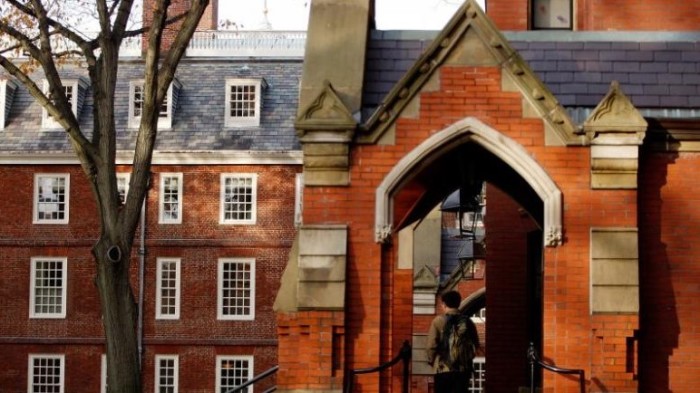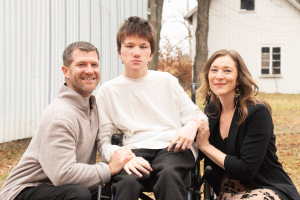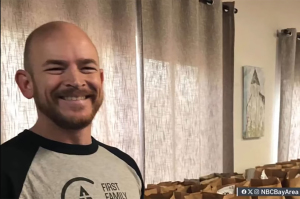Harvard prof. calls for ban on homeschooling, responses emerge

A Harvard Law School professor is calling for a presumptive ban on homeschooling, arguing that it poses harmful risks to children.
In an article titled "The Risks of Homeschooling" featured in the latest edition of Harvard magazine, Harvard Law School professor Elizabeth Bartholet stressed in an interview that children have a right to a "meaningful education" and that the state is obligated to intervene to protect them from abuse, which is sometimes interwoven within homeschool environments. Bartholet is also the faculty director of the Law School’s Child Advocacy Program.
Bartholet cites as an example of this abuse the case of Tara Westover, whose story is captured in a memoir called Educated and recounts how she was raised by survivalists in Idaho and was never sent to a school and received no formal education, despite learning how to read. Westover spent her youth working in her father's scrap business where bodily injuries were common and her older brother abused her. Under the current legal regime in most of the United States, Bartholet says, this is what can happen. She does not believe Westover's case is an outlier.
"The issue is, do we think that parents should have 24/7, essentially authoritarian control over their children from ages zero to 18?" the professor inquires.
"I think that’s dangerous. I think it’s always dangerous to put powerful people in charge of the powerless, and to give the powerful ones total authority.”
Requiring children to attend schools outside of the home for several hours each day, she maintains, does not significantly undermine parental influence on a child’s views and ideas.
The article notes that many Americans — possibly as many as 90 percent by some estimates — who opt for homeschool are driven by traditional Christian beliefs and a desire to remove their kids from mainstream culture.
In an email to The Christian Post Monday, Katy Faust, founder of the children's rights organization Them Before Us, noted that the Bartholet interview poses a question not only about homeschool versus public school, but a much more fundamental question, specifically “To whom do children belong?”
"By arguing parents should have to 'prove their case' if they want to 'opt out of schools,' Bartholet’s answer to that question is clearly, 'children don't belong to parents, they belong to the State,'" Faust explained.
But the reverse is true, she continued, because it supports the child's fundamental right to be known and loved by the two people responsible for their existence.
"It’s also in a child’s best interest to belong to the adults who are the most connected to and protective of them — their own parents. In addition, unlike teachers and school administrators, parents are the most permanent adults in a child’s life. They don’t cease to be connected to children when striking over contracts, transferring districts, when they retire or when a child moves from fourth to fifth grade. The permanent nature of the parent-child relationship means parents are the adults most invested in children’s long-term success. That’s why parents, not the government, are the primary educators of their children," she said.
"Thus, it’s the schools which must 'prove their case' to parents if they want to 'opt in' to educating our children. Children don’t belong to the Office of the Superintendent of Public Instruction. They belong to us, their parents.
"That out of touch elites fail to grasp these simple, self-evident truths should make us even more weary to trust them with control over our children’s education."
Bartholet will be speaking at a summit in June featuring a slate of speakers, all of whom are reportedly steadfastly opposed to homeschooling, according to the Home School Legal Defense Association.
The image featured alongside the recent article is a house that has prison bars over a window with a young girl trapped inside while other children play outside. The structure of the prison-like homeschool in the image is comprised of books, one of which is the Bible.
Bartholet elaborates in the interview that some of these parents are "extreme religious ideologues" who question science and are in favor of white supremacy and female subservience.
“From the beginning of compulsory education in this country, we have thought of the government as having some right to educate children so that they become active, productive participants in the larger society,” Bartholet said.
“But it’s also important that children grow up exposed to community values, social values, democratic values, ideas about nondiscrimination and tolerance of other people’s viewpoints.”
The Harvard magazine article comes amid the worldwide coronavirus pandemic where school systems have closed to prevent further spread of the disease. As a result of the shutdown, kids are being educated at home and some have speculated that homeschooling will increase after the pandemic ends.
The article has inspired notable responses criticizing its underlying philosophy on forums like Medium and Facebook from accomplished Harvard graduates, who were themselves homeschooled and defended their upbringings.
In a Monday episode of his broadcast called The Briefing, Al Mohler, president of The Southern Baptist Theological Seminary, commented on the Harvard magazine piece, noting the ideological aims of the Common School Movement in the United States, particularly under the influence of figures such as John Dewey in the early 20th century. That movement came as an effort to at least partly, Dewey argued, remove children from the religious and sectarian prejudices of their parents by putting them in a common school that would develop a common culture, Mohler explained. Dewey was one of the founders of the American Humanist Association.
"The schools would become a socializing agent and of course there was an ideological component to this as well," he continued.
"[T]hose who have been trying to bring about an absolute revolution in Western societies have found that it is the indomitable strength of the natural family that is the greatest obstacle. And if you're trying to reshape society, you have to aim yourself at the young. You want to gain as much time and influence amongst the young as possible and thus you can see why those who've been trying to push for a more, they would style it, progressivist agenda in the United States have seen the public schools as the great ally and you'll understand why they've been so successful in reshaping the public schools into incubators for this kind of ideological experiment."
Mohler believes that the ideological aims of Bartholet and her like-minded compatriots to restrict and undermine homeschooling will eventually be extended to distinctly Christian schools in pursuit of an elite-defined secularist utopian vision.
"We need to understand that in this context, the modern American context, it is going to take all of our conviction to keep Christian schools Christian, any of them," he said.




























